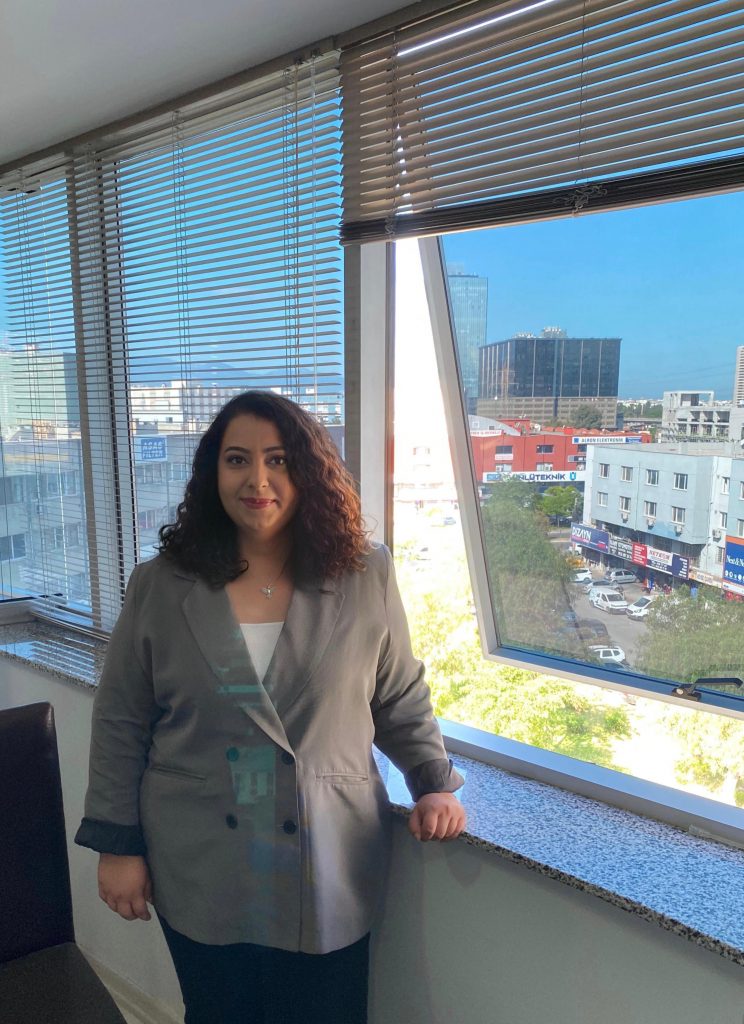Invoice
In our previous issues we gave information about intellectual property rights and supported it with related High Court decisions. We hope we were able to inform the Refrigeration World Magazine readers about patents, industrial design rights and protections given by those rights, which we believe have a great importance in commercial life. However, we haven’t received any feedback from our readers, so we don’t have a clear idea on whether or not our articles have responded to a need. For this reason we believe it would be appropriate to limit our articles about intellectual property rights with only the previous two and hope they have been helpful.
In this issue, we will again try to give information regarding a document we find very important in commercial life: invoice.
We will try to refrain from using legal terminology, use a simple, understandable language, and give brief theorical and practical information about invoice.
Invoice is a word of Latin origin, and it is referred to as “facture” in French and “factura” in German.
Invoice is one of the most common documents in commerce. On one hand, invoice is used to identify the taxpayers’ records and determine the tax base, on the other hand, it documents a commercial relationship and the conduction thereof. For this reason invoice is a document relating to both tax law and commercial law. Regulations regarding invoice are found in Tax Procedure Code (articles 229-232) and Turkish Commercial code (articles 23, 66).
Due to the subject of our article, we won’t dwell on the use of invoice according to Tax Procedure Code, despite it’s more prominent than the Commercial Code regulations.
Invoice differs in land-based trade and sea-based trade. Again, due to our subject, we won’t be dealing with invoice in maritime law, which is regulated in article 1147 of Commercial Code. There is no definition of invoice in our Commercial Code, however, as far as a commercial enterprise is concerned; it is a document which has to be given by the trader to other party, if the trader;
- Sells goods
- Produces goods
- Provides a service
- Provides a profit
The conclusion to reach here is that invoice doesn’t prove the legal relationship on its own; the contract the invoice is based on (sales, work, employment etc.) must be proven separately. Invoice shows that the contract is executed, and it is considered a separate document than the contract. As such, invoice is not considered a “certain proof” in our legal system, even if issued and signed by one of the parties. In other words, issuing of an invoice doesn’t prove that the receiver is the debtor.
Before moving on to under which circumstances invoice constitutes proof, we find it beneficial to briefly touch upon the content and form of the invoice. As a practitioner, I witnessed the problems caused by the inadequacies of form and content time and time again, so I find this especially important.
- Commercial title and signature of the issuing trader
- Commercial title of the receiving trader
- Date of issue
- Type, amount, price and sum of the product sold or produced, or service or profit provided
- Statement of payment received, if required
- Interest for delay
Again, due to its importance in practice, we find it beneficial to give information regarding the interest for delay. According to Turkish Code of Obligations Article 210/1, “unless agreed otherwise, the seller is entitled to payment when the goods have passed into the hands of buyer.” According to this regulation, the seller gets the right to payment after the buyer receives the goods. However, the parties can agree on other arrangements.
For the payee to demand interest for delay there has to be,
- A contractual relationship between parties requiring an invoice,,
- An appointed date of payment,
- A payment not made,,
- A clear agreement on the contract regarding interest for delay (and the interest rate) if the payment isn’t made in time.
The final basis of interest for delay is the continuous, customary use of it between the parties.
To sum up, it is essential to make a separate contract, or in cases it isn’t possible, a current account contract, in order to prove the legal relationship on which the invoice is based, and demand interest for delay.
If there is no separate contract or current account contract, in order to ensure payment and determine the start of interest of delay, the invoice debtor must be defaulted by issuing a warning.
If the interest and interest rate isn’t stated in the invoice, only the verbally agreed interest can be demanded, and the interest for delay can only be demanded at the commercial interest rate, starting from the date of default. So even though it isn’t mandated by Commercial Code, stating the interest and interest rate in the invoice would be very helpful in case of a dispute. According to Court of Cassation, “the record written in the back of the invoice stating the interest for delay is to be paid is valid, and unless proven otherwise, the debtor shall be deemed responsible to pay.”
The last important matter regarding the interest for delay is that in case there is a current account contract (Commercial Code article 94), compound interest (Commercial Code article 8) can be applied to the debts related to debtors’ commercial enterprise for 3-month periods. To explain further, it’s not possible to receive interest for interest (compound interest).Which means it’s not possible to enforce interest to an interest invoice according to Turkish Code of Obligations article 104. However, if there is a current account contract between the parties and the debtor is a trader according to Turkish Commercial Code, if interest for delay isn’t paid in three months, invoice of interest can be subject to interest as well. This regulation once again confirms the importance of making a current account contract.
PROOF STANDARD OF INVOICE
Proof is the revelation of the facts regarding the beginning and ending of a right within the limits of positive law. Evidence, presumptions, and some regulations constitute proof. There are two types of evidence, hard and discretionary. Cognizance (Civil Procedure Code article 236), court decisions (article 237), bonds (article 287 ff), oath (article 377) and commercial books (Commercial Code article 82) constitute hard evidence. The judge is bound by such evidence and has no discretion. Witness (CPC article 245 ff) and expert statements (CPC article 275), viewing (CPC 363 ff) are evidence that the judge has discretion on.
Presumption is another method of proof. Presumption is a deduction based on a certain event, regarding an uncertain event. In our legal system there are conclusive (can’t be proven otherwise) and inconclusive (can be proven otherwise) presumptions.
After these short explanations about evidence and presumptions, and before moving on to “presumption of invoice” we have to determine the legal aspect of the invoice for the issuer; invoice is a written evidence against the issuer, according to proof law has the same effect as a bond, and constitutes hard evidence.
Presumption of Invoice
According to CC article 23, “if the receiver of an invoice doesn’t object to its content in 8 days after receiving, will be considered as accepted.”
Two conclusions can be reached based on this article, first, the receiver of an invoice has 8 days to object to it, and second, not objecting to the invoice in these 8 days is an acceptance.
If the receiver has objected in time, the issuer must prove the validity of the document, and the presumption is not applied. However, if the objection isn’t made in 8 days, the burden of proof will pass to the receiver, and the receiver will have to prove invalidity of the invoice.
This legal presumption isn’t about the purpose of invoice, which is “selling or producing goods, providing a service or profit”, and the main conditions of the contract between parties, but only about the content written in the invoice. Also, the presumption of invoice is inconclusive and can be proven otherwise.
In order to apply the legal presumption of invoice mentioned above, some conditions known in legal terminology as “conditions of authenticity” have to be met. We will list the conditions and move on to the sending, which we consider important. The conditions of authenticity for presumption of invoice are ;
- There must be a valid contractual relationship between the issuing trader and the trader the invoice is issued to, about sale or producing of a product, or providing a service or profit,,
- The invoice must be drafted in accordance to requirements of form,
- The invoice issued must be sent to the trader the invoice is issued to,,
- The receiving trader mustn’t object to the invoice content within 8 days.
One of the most important conditions of authenticity is that the invoice must be sent. In order to apply the presumption, simply drafting the invoice is not enough. The invoice must be sent to the other party and this has to be documented. By using the words “8 days after receiving”, the code openly states that the delivery of invoice is a condition. Regarding the method of delivery and receiving, there are no regulations. In practice, many traders, probably some of the Refrigeration World Magazine readers simply deliver it by hand. However, disputes regarding whether or not the invoice is received are mostly lost due to such behavior. Because the traders who want to benefit from the presumption must prove the delivery, the reception and the date of reception. So the invoice must be sent in accordance to the items mentioned above. It is possible to send the invoice via notary, but it would be quite expensive. In our opinion, the most convenient method would be sending it via cargo, with the invoice date and number stated on the dispatch note. This way, the delivery date and the receiver would be determined.
Who are authorised to receive the invoice? Notifications are invalid if they aren’t in accordance to the procedure. The receiver of the invoice is the party of the contract in question or their representatives. These representatives are the traders themselves, or their commercial representatives and commercial agents authorised to receive notifications.
For legal person traders, the authorised people are board members or managers if joint-stock company, and managers if limited liability company. For other companies, the notifications must be made to the authorised representatives. If there aren’t any, employees who are authorised to receive documents must be notified. Proving the delivery or notification is made to one of these people also proves that the invoice is sent to the receiving trader.
Finally, it should be said that it’s not possible to apply article 17 of Code of Notifications to invoice delivery.
In conclusion, to sum up shortly, a legal relationship which provides base to an invoice, must be documented with a contract or a current account contract in order to benefit from the presumption of invoice, and accessories such as interest for delay, because invoice alone doesn’t constitute evidence. Delivery of the invoice to other party must also be documented.
We end our article about invoice here as this is all the space we have.Of course, a vital item about invoice like the dispatch note, the procedure to protest an invoice, the booking of invoices, the effect of the presumption on third parties, whether or not an invoice constitutes proof to ownership, legal and penal responsibilities regarding invoice aren’t mentioned, we’re aware of that.However, due to the important problems in practice, we had to prioritise the issues mentioned above. I believe it would be more appropriate to continue the article about invoice based on the reader feedback.
I celebrate our readers’ past eid al-fitr, and wish them a productive, festive life full of love.
Att. Bülent KAPTAN
Patent & Marka Attorney
http://bkaptan.com/
kaptan@bkaptan.com







